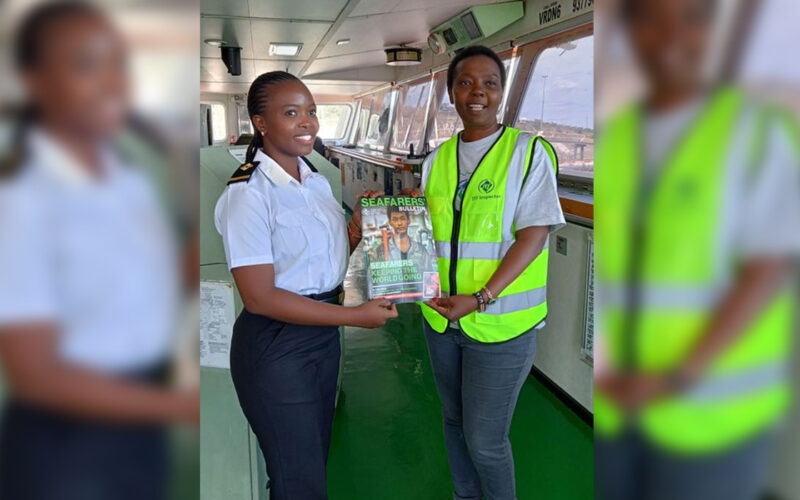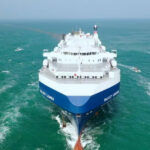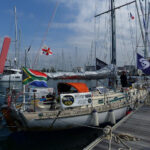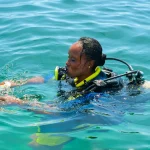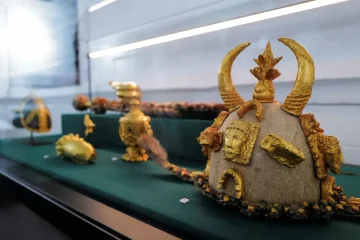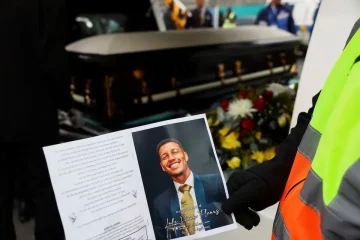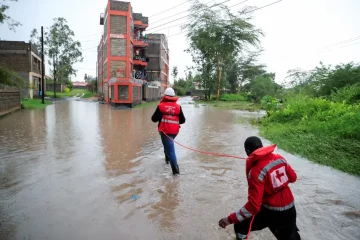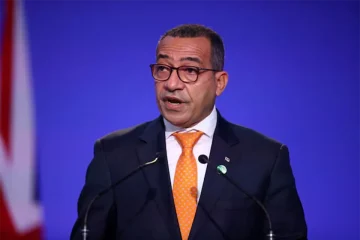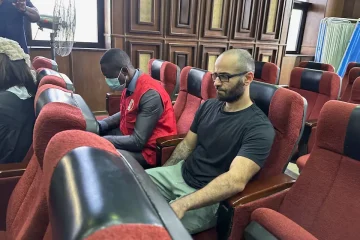[tta_listen_btn listen_text=”Audio” pause_text=”Pause” resume_text=”Resume” replay_text=”Replay”]
“WITNESSING the vastness and the beauty of the ocean, encountering diverse marine wildlife and navigating through challenging breathtaking waterways are some of the remarkable aspects of the job,” Elizabeth Marami says passionately as she describes her role piloting one of the newest vessels in a growing global fleet of cruise ships.
“Each voyage presents opportunities to learn and adapt to new situations,” she says of her role behind the wheel of luxurious Celebrity Cruise ships, capable of holding up to 3,260 passengers and 1,400 crew members.
While the experience of sailing along the Indian Ocean and exploring the sunny coastlines, stunning beaches and spotting dolphins jumping from the water could be most people’s idea of a memorable vacation, Marami views this as part of her job.
Born and raised in Kenya’s coastal port city of Mombasa, as a child Marami would watch ships sailing in and out of the city’s picturesque harbour. She did not dare to dream, then, that she would one day be able to navigate the huge vessels through the coral headlands of the East African port.
After high school, Marami won a scholarship in 2009 to study Nautical Technology in Egypt, a course she knew very little about; offered the scholarship, she took it without thinking twice.
“I always wanted to be different, do something that will be impactful, so when the opportunity came, plus growing up in Mombasa, surrounded by water, it was a no-brainer for me. Though green about the industry, I knew there was no turning back when I set foot in it. I was born to do this.” Marami said.
Today, Marami is Kenya’s first female marine pilot and is employed as a first officer on Royal Caribbean Group’s Celebrity Cruises. She also has a United Kingdom certification of Chief Mate unlimited/ Master 3000GT.
“A marine pilot is responsible for safely guiding ships through challenging waterways and harbours. They possess extensive knowledge of local waters and board incoming and outgoing ships, working closely with the ship’s captain to navigate through congested areas, narrow channels or challenging weather conditions,” she explained.
“It hasn’t been easy. It has taken 15 years of training, hard work and some hurdles that not every potential sea captain will face. I believe my biggest challenge is breaking the gender stereotype whilst trying to be the best at what I do and overcoming the biases. The job in itself can be pretty demanding, plus we are constantly studying, upgrading our skills and knowledge,” said Marami.
Marami attributes her success in this course to the unwavering support of her family.
“Let’s just say I would never have gotten this far if it wasn’t for their support. NEVER. They remain my biggest cheerleaders, who keep me going even when I feel like throwing in the towel.”
Marami has served as an inspiration to numerous women in Kenya and across Africa, including Harriet Kadzo, who aspires to achieve the same success in her career.
“The seafarer job is challenging, the work is hard, often highly physical and being promoted to higher ranks needs a lot of hard work, dedication and determination. My dream is to become one of the successful Master Mariners, and be able to give back to society, because I believe that is my purpose,” said Kadzo, who is waiting to get on board as a third officer.
Kadzo currently lectures at the Bandari Maritime Academy, which is her former school, and whose grounds look out over the very Mombasa harbour that Marami gazed at as a young girl. However, while the academy is a starting point for a potential career, an education that sets one up for a maritime job in Africa’s “blue economy” is still not easy to come by.
“Getting an education to qualify for this work was a challenge here,” said Kadzo.
“At Bandari College, currently Bandari Maritime Academy, we had fewer lecturers and less practical experiences; I had to work extra hard to pass my KNEC exams. Same with sea time training of which hard work, commitment, and persistence sailed me through.”
Luckily, there is growing support not only for Africa’s nascent blue economy (which covers industries which exploit, preserve and regenerate the marine environment) but also for women moving into the sector.
Nancy Karigithu, who has worked for over 30 years in the Kenyan government overseeing the maritime industry was recently nominated secretary-general of the United Nations International Maritime Organization.
She is well aware that seafaring can be a tough place to be a woman.
“Women seafarers work mainly in the cruise and ferries sector, which are among the lowest paid and least protected of jobs at sea. Women also tend to be younger and fewer than their male crewmates. Their low number means that women can be subject to discrimination and harassment,” said Karigithu.
Despite the challenges, however, Marami sees a big future for women on the sea.
“A vision for me and other seafarers in the industry is to tirelessly promote gender equality, empower women in pursuit for a maritime career while advocating for policies and initiatives that support diversity and inclusion within the maritime industry, not only in Kenya but across Africa and the world.”
Kadzo agrees with Marami and believes breaking the “glass ceiling” is very possible.
“My message to other young women who want to join the industry is that maritime industry is now for everyone, both male and female. I urge them to be focused, patient, persistent and always pray to the Almighty to guide their paths. Most of all, if they want something, they should go for it.”
Karigithu, the only African candidate for her UN post, takes pride in her fellow seafarers.
“Having young Kenyan girls like Elizabeth and Harriet, not only boldly take up careers in the maritime sector, but also thrive in their chosen paths is very humbling. It is also a mark of the very positive results that can be achieved through role modelling and mentorship. It is also a clear illustration that to be an effective employee in shipping, one doesn’t need to have a strong back – one needs a strong mind.”

